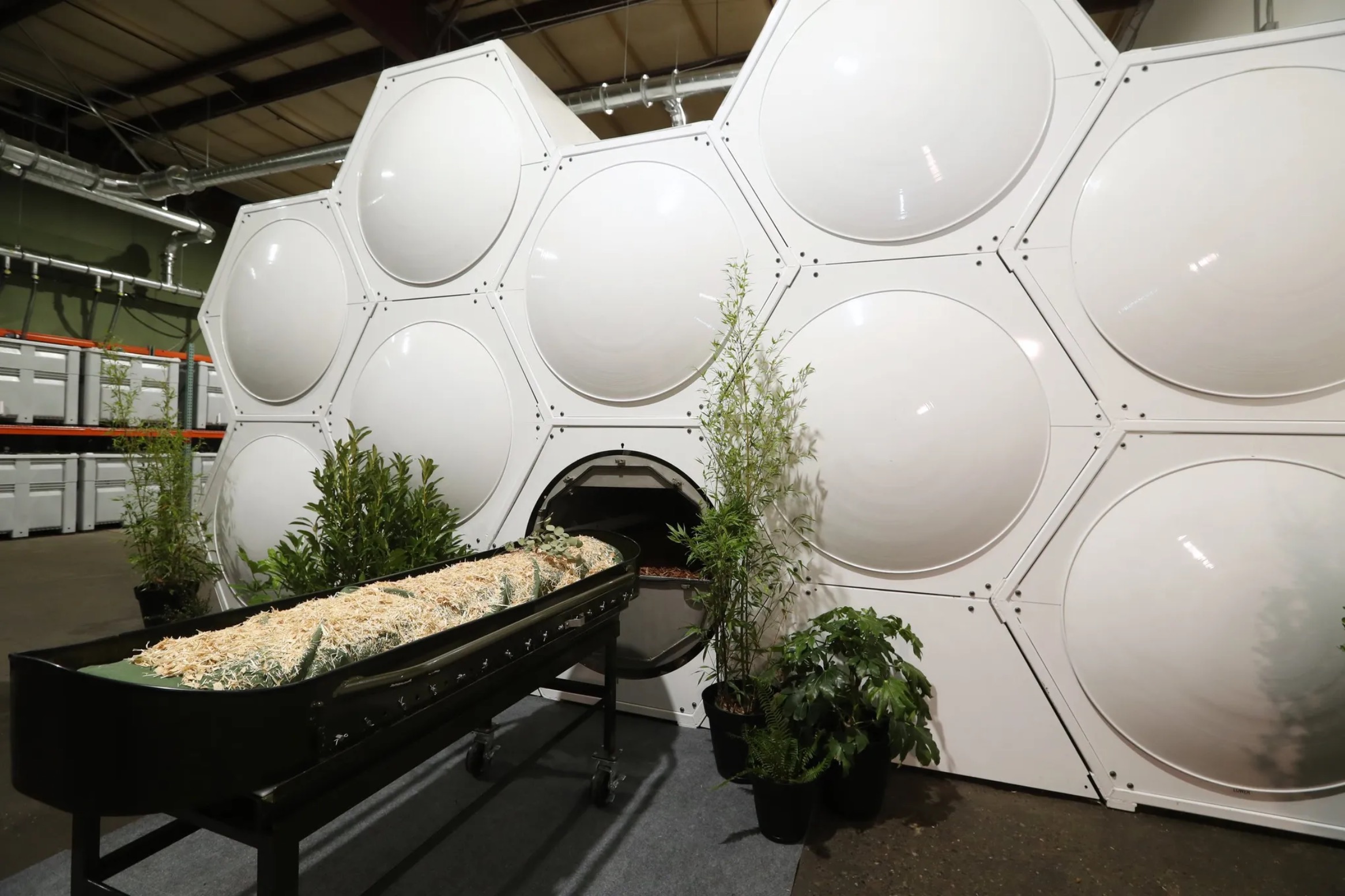
- Sustainable Planet -
- 5mins -
- 610 views
First U.S. funeral home for composting human remains now open in Washington state
Recompose is America’s first full‑service funeral home specialising in human composting, using the principles of nature to transform our remains into fertile forest soil.
Recompose is the first human-composting funeral home in the U.S.
After a decade of planning and fundraising and a successful bid to change Washington state law, Recompose, a composting funeral home, finally opened for business when the first bodies were “laid in” on 20 December, 2020, as The Seattle Times reported when it happened.
In a separate report, Freethink said that the facility looks somewhat like a giant beehive in a warehouse. Each hexagon shape is a long tube filled with wood chips, alfalfa, and straw. That is where the human remains lie. Add in a little organic material munching bacteria, and the human body will turn into a large box of mulch.
The composting process, referred to as “natural organic reduction,” takes about one month and costs $5,500. Families can then decide to find a home in nature for the remains, or Recompose will deliver it to Bells Mountain conservation forest in southern Washington.
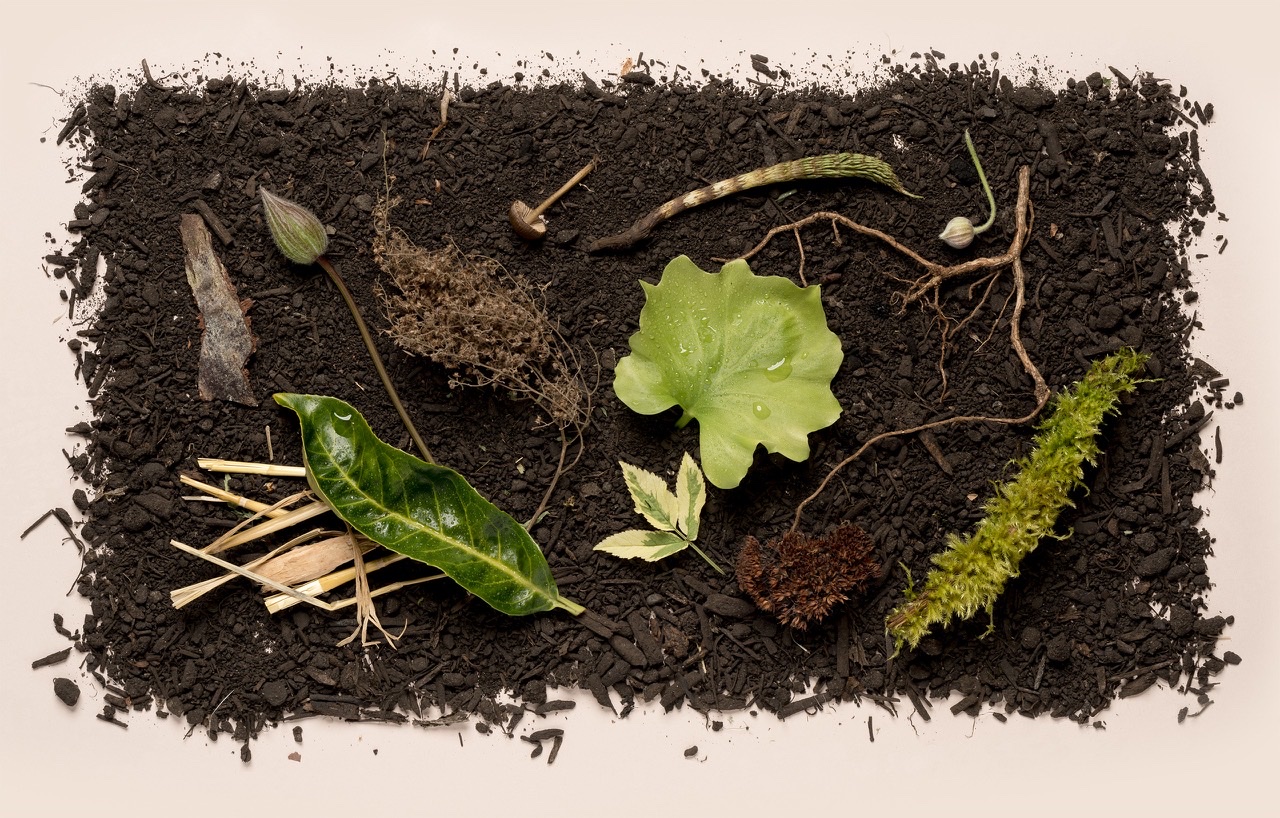
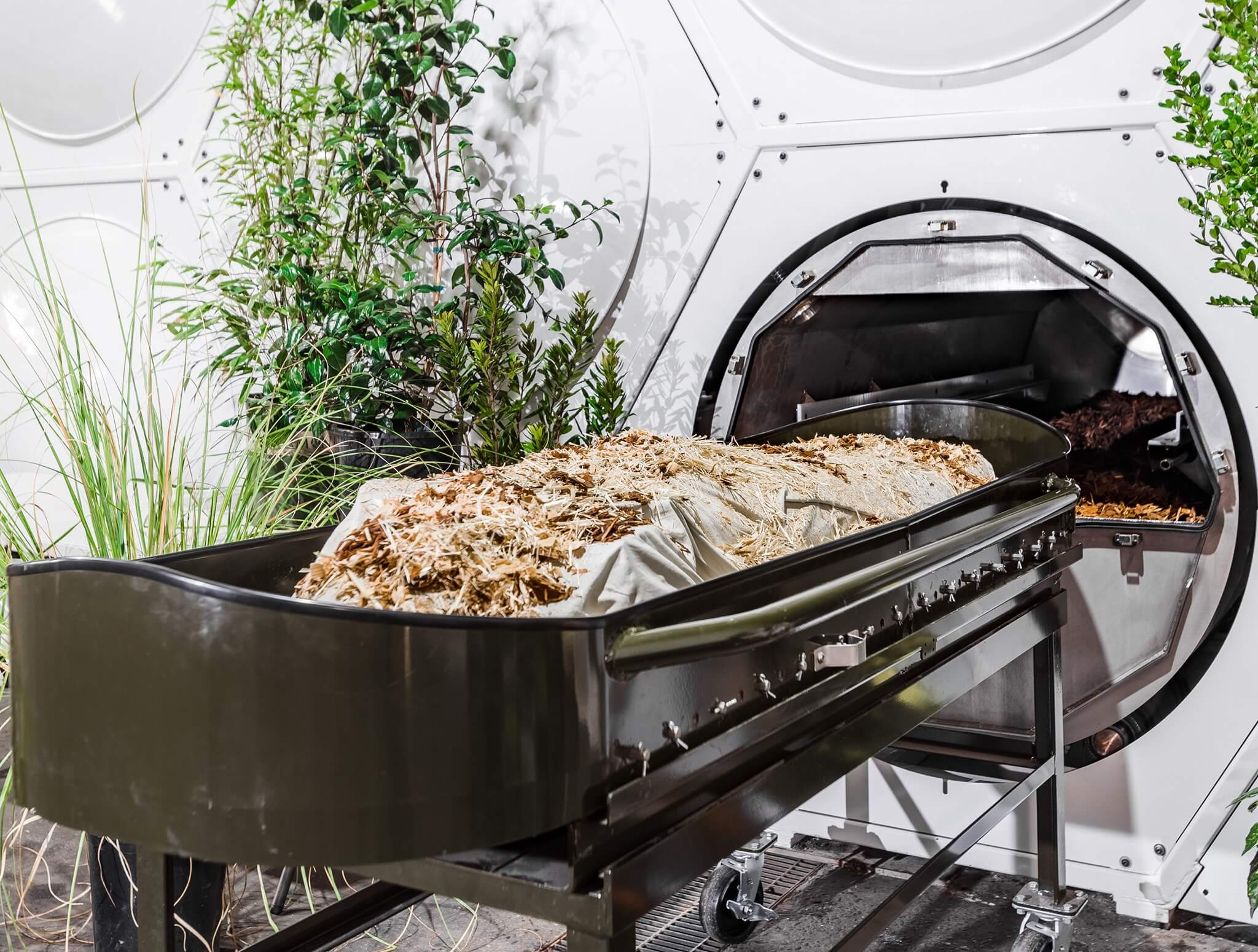
composting human remains makes practical sense
Studies show that human composting can be an energy-efficient, “green” way to dispose of remains. Recompose says that one metric ton of CO2 is saved for every person composted instead of cremated — about the same amount a gasoline-powered vehicle emits in 3 months. And Earther reports that the composting footprint is less than the toxic chemicals used in embalming, or the carbon dioxide and pollutants emitted during cremation. — Freethink
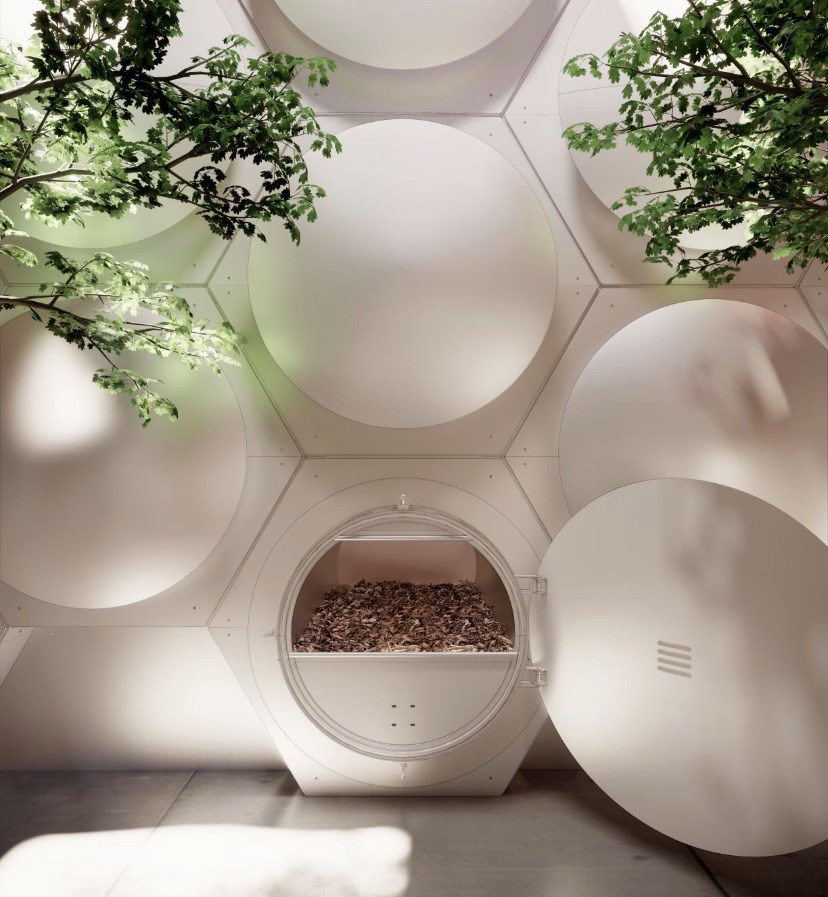
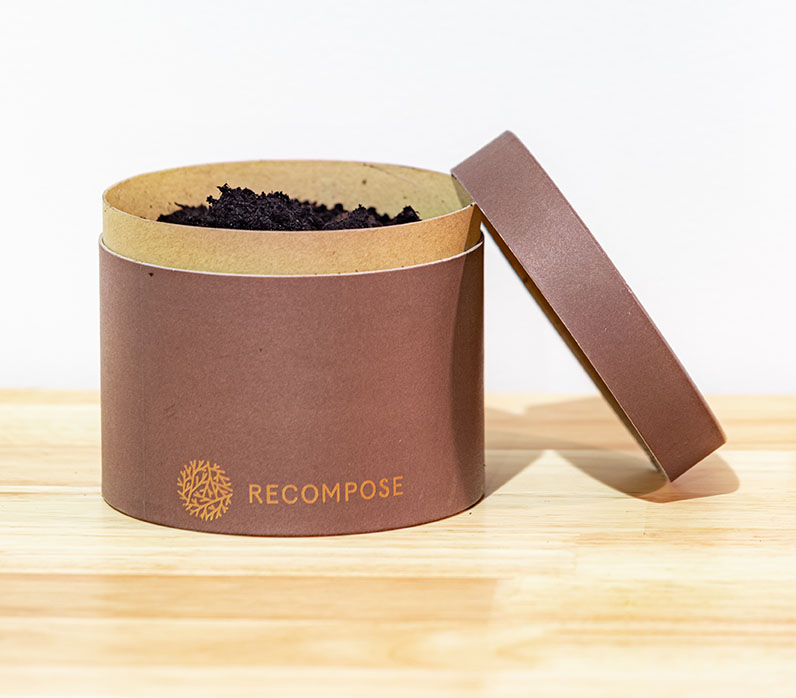
human composting is an environmental alternative to traditional burial methods
Compounding urban overcrowding issues is the environmental impact of traditional burial methods. According to the non-profit Green Burial Council:
- More than 4.3 million gallons embalming fluid (almost 20 million litres) and 20 million board feet (over 6000 km) of hardwood go into the ground each year in the U.S.
- cremations release 1.74 billion pounds (789,000 metric tons) of carbon dioxide into the atmosphere
To address these challenges, alternative green burials such as “human composting,” are emerging.
Lynne Carpenter-Boggs, science advisor at Recompose, is one of the researchers leading the effort to bring human composting to life. As a soil scientist at Washington State University, Carpenter-Boggs previously studied methods for composting livestock on farms, which eliminates the risk associated with transporting dead animals.
The challenge of adapting livestock composting, which mixes corpses with manure and rotting food, to human composting is finding socially acceptable materials. Her team evaluated wood chips, weeds, straws, and grains to create a blend that support body-decomposing bacteria.
Source: Freethink
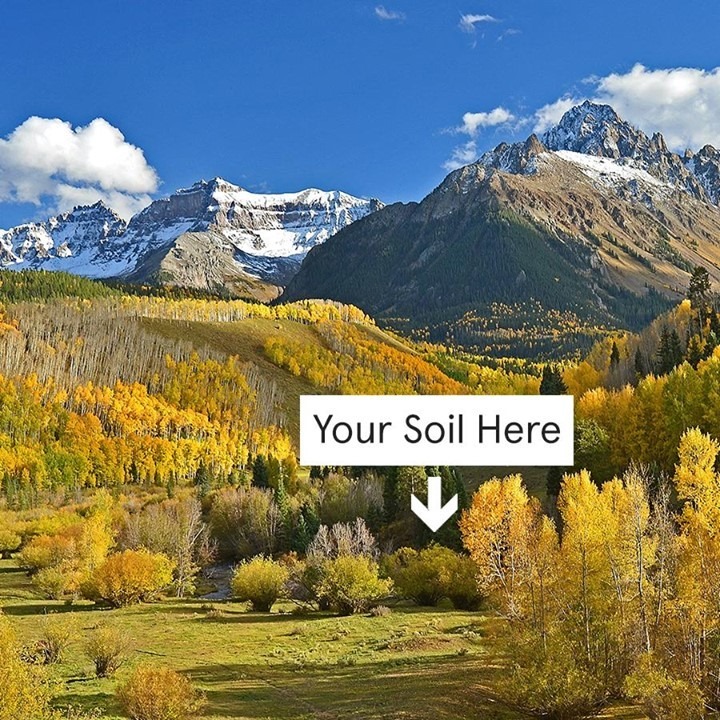
Life after death: Human becomes soil
The labour of Recompose is done in large part by microbes. These microbes are naturally-occurring: they are on us as we live and breathe. They are on our bodies after we die.
Each body stays in the vessel for 30 days. One month of resting, decomposing, changing. The transformation that happens during this month is total. Molecules break down and are rearranged. Human becomes soil.
Each Recompose vessel is designed to stack with other vessels.
‘After death, we are part of a collective. Once our bodies are transformed we get to join the broader ecosystem. We become the forest, the meadow, the land.’ — Recompose
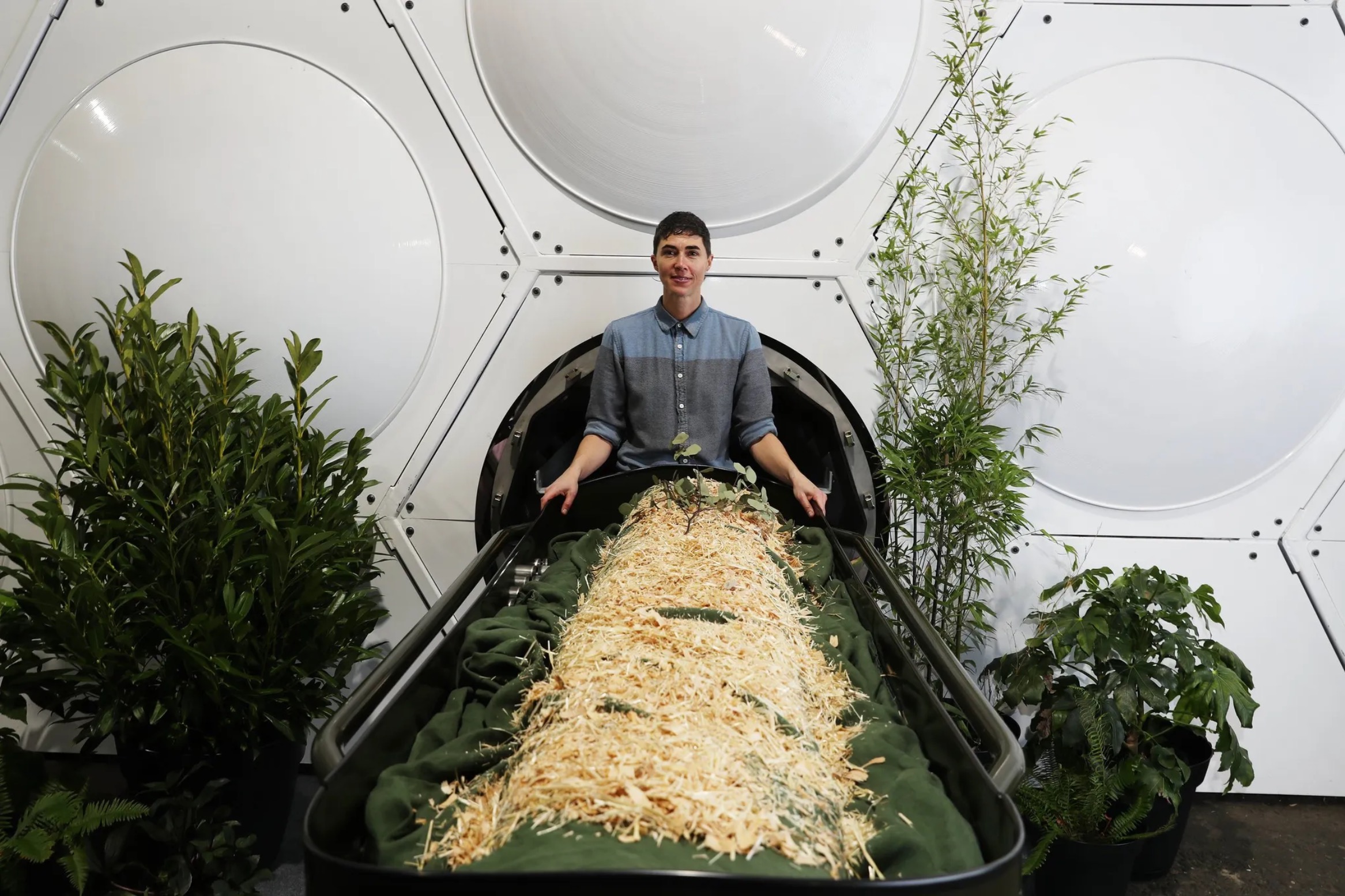
Laws were changed to make this happen
Recompose sponsored a 2018 Washington State University study to determine the safety and effectiveness of composting human remains.
Six subjects were composted during the five-month study. They found that the process met the EPA standards for composting facilities in Washington state. And, when measuring the resulting material, toxins like arsenic and lead stayed below the EPA limits.
Spade’s efforts convinced the state of Washington to be the first to legalise human composting. The new rule went into effect in May 2020 and allows for “the contained, accelerated conversion of human remains into soil.”
Source: Freethink
